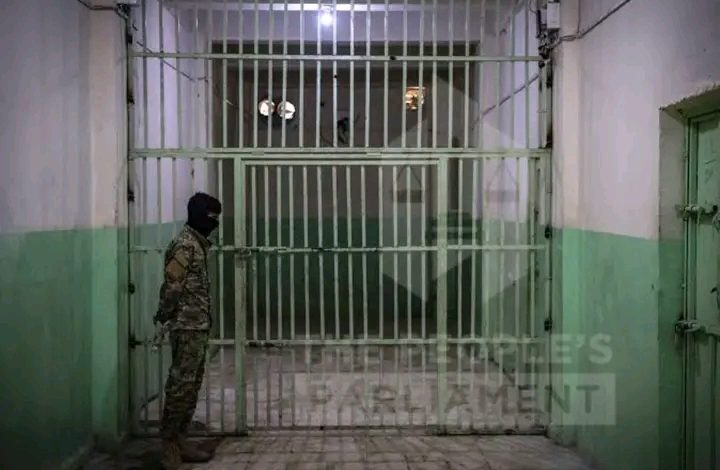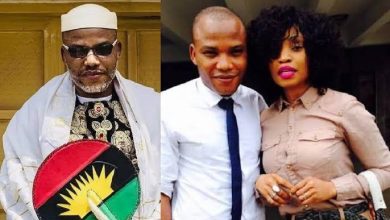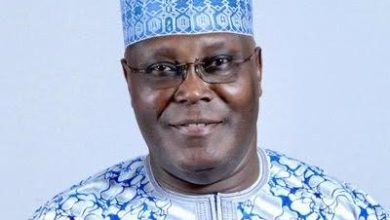“Inside the Iron Gate: Nnamdi Kanu Thrown Into Nigeria’s ‘Prison Within a Prison’”

By Passman Akpos
A fresh wave of controversy has erupted following revelations about the detention conditions ordered for the detained leader of the Indigenous People of Biafra (IPOB), Mazi Nnamdi Kanu.
According to detailed accounts attributed to his consultant and brother, Kanu has been placed under what the court describes as “special custody conditions”—a designation Justice Omotosho said was necessary due to what he referred to as Kanu’s “violent tendencies and prior security concerns.”
Inside the ‘Prison Within a Prison’
Sources familiar with operations of the Nigeria Correctional Service explain that inmates under “high-security classification” are kept in a strictly controlled section sometimes informally described by officers as “prison inside prison.”
This section—designed for inmates considered dangerous, highly influential, or at high risk of escape—is built with reinforced iron security gates. Unlike general-population inmates who move freely within designated areas of the facility, high-security inmates are reportedly restricted almost entirely to their cells, with minimal movement, heightened surveillance, and heavy structural barriers.
It is within this controlled environment that Kanu is now being held in the Sokoto Correctional Centre, following his relocation from Abuja.
Concerns Rise Over Harsh Conditions
Family members and close associates say the harsh custodial measures amount to punitive isolation.
“These are the experiences Nnamdi Kanu will be passing through as we speak,” his brother said, calling for intervention from political, cultural, and religious leaders across the South-East.
Calls for Dialogue and Clemency
Amid the growing tension, the civic group The People’s Parliament has urged prominent Igbo leaders to adopt a more pragmatic approach.
According to a statement from the group, “If they truly love Nnamdi Kanu and want him free, they know what to do. Mercy is part of justice. They should seek presidential pardon.”
The group argues that while legal battles continue, political solutions—including clemency or negotiated release—remain viable options frequently used in other national security and reconciliation contexts.
National Reactions
Kanu’s new custody status is likely to intensify renewed debates surrounding his trial, human rights standards in Nigerian correctional facilities, and the political dimensions of the IPOB case.
For now, attention is fixed on Sokoto, where the IPOB leader begins what appears to be one of the toughest phases of his incarceration—one defined by isolation, reinforced barriers, and a security regime reserved for Nigeria’s highest-risk inmates.





